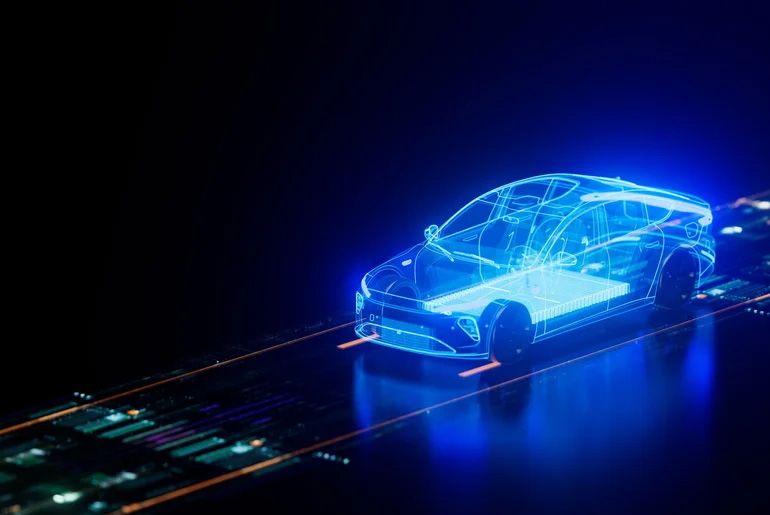Breaking Down the Barriers: How Advancements in Battery Technology are Revolutionizing Electric Vehicles and Autonomous Driving

The automotive industry is on the cusp of a technological revolution, with electric vehicles (EVs) and autonomous driving (AVs) at its forefront. At the heart of this innovation lies battery technology, which has become increasingly crucial for both EVs and AVs to function efficiently.
In a bid to meet the growing demand for sustainable transportation, the industry is shifting towards high-capacity, reliable battery packs that can ensure longer ranges and faster charging times for EVs. This shift has already led to significant advancements in solid-state batteries, which promise to double the range of current electric vehicles while reducing charging times.
Autonomous electric vehicles require more power than traditional EVs due to the high computational load needed for sensors, cameras, LiDAR, radar, and onboard processing systems. To overcome this challenge, researchers are exploring new battery technologies that can deliver higher energy densities and longer ranges without compromising performance.
Among these innovations is the development of advanced battery management systems (BMS), which play a critical role in ensuring the longevity and safety of battery packs in EVs and AVs. Optimizing charge-discharge cycles and monitoring battery health, BMS can enhance efficiency and reliability.
Fast-charging technology is another crucial element that's gaining traction. Ultra-fast chargers capable of delivering over 350 kW will enable AVs to recharge within minutes, thereby enhancing their operational efficiency.
The growth of autonomous electric vehicles has been linked to the development of EV charging infrastructure. To meet this demand, researchers are designing smart charging stations equipped with automated EV charging capabilities that can optimize charging schedules based on grid demand and energy prices.
Wireless charging technology holds further promise for transforming how AVs operate. Inductive charging pads embedded in roads or parking lots can allow vehicles to recharge on the go or while waiting for their next ride request, eliminating human intervention altogether.
As renewable energy sources like solar and wind become increasingly prevalent, EVs will play a critical role in serving as mobile energy storage units. High-capacity batteries will be essential in optimizing this integration, using advanced battery technologies that can efficiently store renewable energy and feed it back to the grid during peak demand.
Recent advancements in artificial intelligence (AI) and machine learning are also transforming the management of EVs' battery technology. AI algorithms can optimize charging processes, predict battery degradation, and extend battery life by adjusting charging parameters in real-time. This is particularly beneficial for AVs that require maximum uptime and efficiency.
However, challenges remain in developing sustainable battery technologies, including reducing degradation over time and securing raw materials necessary for lithium-ion batteries. Researchers are exploring alternative battery chemistries, recycling processes, and circular economy practices to mitigate these issues.
As the automotive industry hurtles towards a more sustainable future, advancements in battery technology will play a pivotal role in shaping the trajectory of EVs and AVs. Investing in cutting-edge solutions that enhance energy efficiency, charging times, and sustainability is crucial for realizing a cleaner, smarter, and more efficient transportation system.
